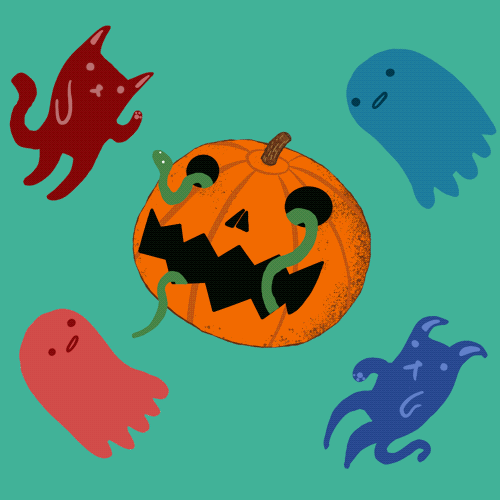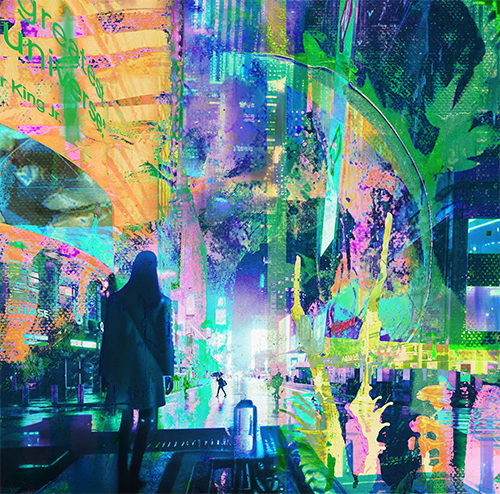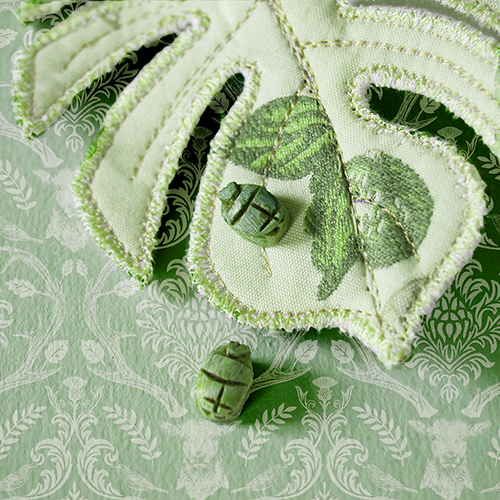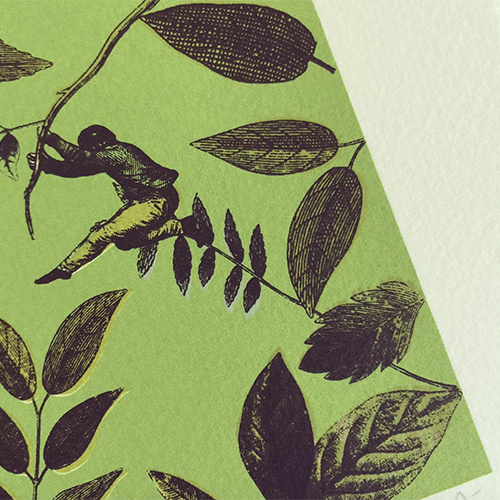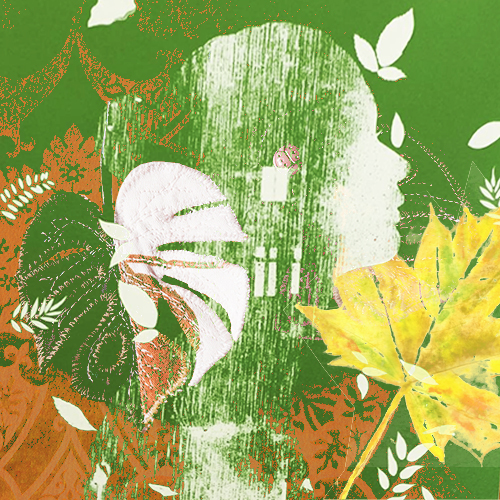Night City is not a walkable city. A “tips and tricks” article I read before starting Cyberpunk 2077—a game by Polish developer CD Projekt Red where you play as a freelance mercenary in a terminally capitalist sci-fi future—encouraged players to explore the game’s world on foot, not just zoom through the streets from behind the wheel. But like the Californian sprawl that NC is inspired by, all I found as a pedestrian were eight-lane highways, parking lots, and cars that kept hitting me and driving away.
Maybe the constant hit-and-runs are a bug (of which there are, infamously, many), or maybe it’s a commentary on the fact that the US has the highest rate of traffic fatalities among high-income countries. Before the pandemic, just five percent of American commuters took public transit to work; in Night City that figure appears to be zero percent. There are bus and subway stations but no actual buses or subways—the stations are entirely cosmetic—leaving NPCs to patiently wait for nothing, forever. A new update finally added functioning trains, but the feature only works on the PS5 and other expensive, new-generation consoles, leaving pleb PS4 owners like me in the dust.
You can ride the train in Grand Theft Auto IV’s fictional version of New York, which serves no practical purpose; the game’s focus on stealing and driving cars is right in the title. But there’s something banally comforting about descending into a grimy, dimly lit station and riding all the way from not-Midtown to not-Coney Island, the screeching and rumbling and automated station announcements (“This is . . . Grand Easton Terminal”) all uncannily realistic. The most memorable and spectacular missions in GTA IV involve the subway: a bank robbery where you escape on foot through a tunnel, and a high-speed underground motorcycle chase where you dodge oncoming trains before gunning down your target as you cross the equivalent of the Manhattan Bridge BDNQ track—which I immediately recognized when I rode the Q for the first time and emerged from the darkness to the glass forest of Lower Manhattan, a sight that, in the year I lived in Brooklyn, I never tired of.
It’s just everything else about New York that was tiring, most of all talking about New York. My therapist told me that looming over every conversation you have in New York is the invisible presence of The City, the idea and symbol and specter of it, as if it pulled up a chair next to you. At parties my partner G and I went to, The City was a constant and perennial topic of conversation: how we just moved here from Pittsburgh, how it takes at least two years to get used to, how you have to fight for everything, whether it’s a seat on the subway or a reservation at a restaurant or a ticket to a concert or a 700 square foot 1 bedroom in Flatbush we paid an obscene amount for, where every Wednesday G had to wake up at 7 am and commute an hour to their stupid corporate content writing job that literally made them cry multiple times until it wasn’t worth it anymore, just wasn’t, none of it was.
As my friend Andrew put it when he finally moved away from Philly after living there for over a decade, “I prefer trees to concerts.” We also preferred trees, and G preferred to make half as much money as a visiting lecturer at the University of Pittsburgh, returning to the place where we met and fell in love. When I first visited Pittsburgh I was struck by how forested it was, a city in the woods with narrow row houses clinging to dense green hillsides that look (as G once evocatively put it) like crooked teeth. Upon returning I realized I’d forgotten what it felt like to live among life, to hear and see the chirping of birds and skittering of squirrels and darting of deer, which apparently are so overpopulated that the city hired volunteer archers to kill them in Riverview and Frick Park.
Andrew had moved to Charleston for a tenure-track professorship (get a PhD in biostatistics if you like money and job security (not an MFA in creative writing, like me and G)) and lives a ten-minute walk from the brackish waters of the Ashley River, where he and his wife go fishing and shrimping and crabbing. When I visited him last fall they caught and cooked lunch, and afterwards Andrew showed me the high-powered gaming laptop his work got him for free (biostatistics) that we used to play Cyberpunk 2077—a game he described to me as mindless, although not necessarily in a bad way.
It was compelling enough that I picked up the game from the Carnegie Library of Pittsburgh (the only library system I’ve ever used that has video games), playing through while G was away at an artist residency. You start by choosing the gender and customizing the appearance of player character V; I tried to make him look Asian, but mostly he looked constipated. (As many critics have noted, although you can make V have any genitals regardless of gender, you can’t make V meaningfully trans or nonbinary, and the game as a whole is aggressively binary.)
You then choose V’s origin story: he (I’m using “he” to describe my experience of the game) can be a corporate drone, a rough-and-tumble street kid, or (my choice) a complete outsider, a nomad who wandered the barren expanses of the NUSA before leaving his clan to make a fresh start in Night City. I’m a sucker for stories about nobodies from nowhere trying to make it in The City (see Shin Kyung-sook’s Violets, Xu Zechen’s Beijing Sprawl, and my own life), and Cyberpunk 2077’s intro certainly fit the mold, with V fixing his beat-up car in a dusty small town, readying himself for his new, urban life.
Among the many characters V meets—a world-weary boxer turned cybernetic doctor, a VR film editor who makes porn for a living but harbors her own artistic ambitions, a gravelly-voiced detective haunted by all the people he couldn’t save—Night City is a constant and perennial topic of conversation, how it draws you in and grinds you down and chews you up and spits you out. V is always hustling for his next gig, whether that’s stealing top-secret technology from a Japanese corporation, kidnapping a Scandinavian scientist, leading a sex worker revolution, or whatever else he has to take on to pay the bills.
But this Night City, the idea and symbol and specter of it, exists only in the mostly non-interactive conversations V has, where you can choose dialogue options that sometimes shunt you into different narrative tracks and at other times are functionally identical. The actual Night City the player experiences is completely hollow, a Giant Eagle-brand Blade Runner knockoff (bright neon signage in Chinese and Japanese, flying cars, brutalist skyscrapers, smokestacks on fire) that becomes an active obstacle to enjoying the game. And despite references to V’s financial precarity (an email on his computer reveals that his rent is overdue) money is trivially easy to earn—I have nearly €$400,000 in my account.
Tim Rogers, in part 5 of his 10-hour review of the game that was honestly more fun to watch than playing the game itself, described video game open worlds as elaborate level select menus, which clarified my experience of Night City: pressing the touch pad to open the map, selecting a mission, getting into my car, driving several minutes to the flashing yellow exclamation point on the screen (ignoring the scenery because I’m constantly looking at the minimap in the upper-right corner, similar to how driving with Google Maps prevents you from actually understanding the layout of the place you’re driving through), parking, exiting the car, and at last starting the mission.
But if the mission can only begin at a specific time of day, you have to approach a bench or railing and press square to sit on or lean against it, the screen cutting to “SOME TIME LATER” when the mission can finally begin. Does V just wait there for hours, doing nothing? Does he check his phone? Read a book? Play a video game to kill time, in the middle of this video game I’m playing to kill time? Why allow me to skip to the mission’s correct time of day, but not the location? Why not go all in and make me wait for the virtual sun to set or rise, forcing me in the meantime to check my phone or read a book or grab my Switch and play another video game to kill time in the middle of this video game I’m playing to kill time—I need a video game from my video game! There are terminals scattered throughout Night City that you can use to teleport to other terminals, but that still involves walking/driving to one, selecting the one closest to the mission, sitting through a loading screen, and then walking/driving from that terminal to the actual mission location, a process that’s sometimes longer than just commuting there yourself.
That’s what Cyberpunk 2077 can feel like at its worst: commuting to work. I sometimes compare my work as a podcast producer to assembling Ikea furniture. I’m given various components (voiceover narration, interviews, news clips) and a script, which acts as an instruction booklet I follow to “build” the story in audio editing software. As production wrapped on a project I worked on last year, my contract expiring exactly one month after our Brooklyn apartment lease expired, I often had to work evenings to meet deadlines, sometimes until midnight. Towards the end I was denied overtime and reprimanded for requesting it. This sort of “crunch” seems to be endemic to creative industries: as the release date loomed, Cyberpunk 2077 developers were told by their CEO that “six-day work weeks will be mandatory,” although thankfully “the extra work would be paid, as required by Polish labor laws.”
It can feel quite bleak to sit hunched over a screen manipulating virtual objects for money; it can feel bleaker still to, in the hours I don’t spend working, sit hunched over a screen where I mindlessly drive to a flashing yellow exclamation point, screech to a stop when the Night City Police Department tells me to NEUTRALIZE THE PERPS AND SECURE THE EVIDENCE, walk up to a group of armed NPCs, press and hold the right trigger to pull out a smart assault rifle and shoot target-homing poison-bullets that explode in clouds of noxious green smoke until everyone is dead, stand over their corpses, mash square to take their guns and clothes and belongings (whereupon the NCPD transfers thousands of eurodollars to my account, having successfully NEUTRALIZED THE PERPS AND SECURED THE EVIDENCE), get back in my car, and finally drive to a mission where I play in a rock concert, pressing square at designated moments to “flash devil horns” and “play [a] sick [guitar] solo.”
But bleakest of all is not having any virtual objects to manipulate for money, which is the situation I now find myself in—my latest freelance contract over, my final invoice sent last month, my bank account still awaiting payment. My move to Pittsburgh coincided with the collapse of the podcast industry. Hundreds of audio workers were laid off, including former coworkers of mine. Full-time salaried positions have been replaced with part-time temp work. I went from making $1,400 a week in New York to less than $900 every two weeks in Pittsburgh, adjuncting at a college Werner Herzog described as “intellectually impoverished.” But scraping by from gig to gig is still livable in Pittsburgh in a way The City hasn’t been for a while, with G and I paying seven hundred less for an apartment with four hundred more square feet, a short walk from the gnarled overgrowth of Frick Park where, despite a sign warning me that city-authorized deer hunters roam the woods, I released a breath I didn’t realize I’d been holding in for over a year.
The day after my last Zoom meeting with my supervisor, I turned 29. The day after that, I finished Cyberpunk 2077. There are five possible endings to choose from; one of them is to leave The City, which is what I chose for V and what G and I chose for ourselves. For all my complaints, as I stayed up past midnight because I no longer had any reason to wake early the next morning, I was genuinely moved by the game’s final moments: piloting a stolen hovercraft with a convoy of fellow nomads, following the flashing yellow exclamation point one last time as a dust storm blows in, maneuvering through a narrow smuggling tunnel before emerging to the endless expanse of the New American West, pressing square to at last “breathe free”—the future uncertain, the night full of stars.
